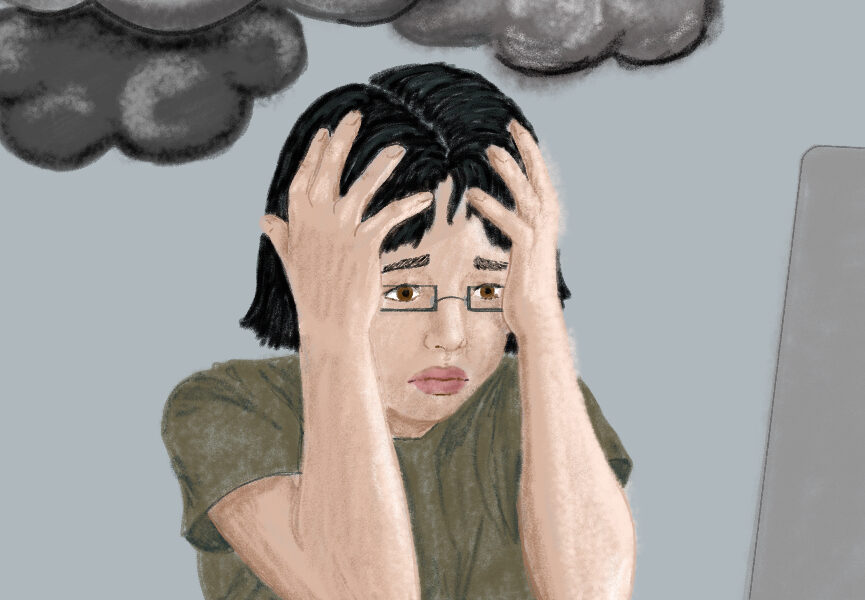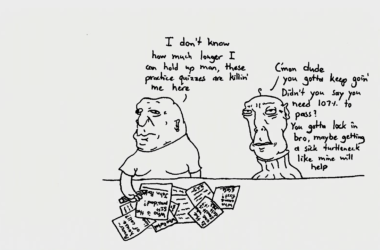My fellow students, we’re in the eye of the storm. Two weeks post-reading week, the first flood of midterms is just behind us. Unfortunately, the McGill student body knows the worst is yet to come. The forecast calls for a downpour of exams and assignments until late November, and as we brace ourselves for the next deluge of stress, our grades are also trickling in. For many of us, those results may not be what we hoped for, and they seep into our minds even as we try to look forward. It’s common for disappointment, frustration, and self-doubt to pour in. Yet, as the semester’s pressure builds, how we respond to these moments matters just as much as the grades themselves.
When the structures of university life dictate so much of our daily routines, it’s easy to see ourselves primarily as students. Thus, when grades fall short of expectations, they can feel like a reflection of our self-worth rather than measures of momentary performance.
Abril Meza Naranjo, U4 Arts, credits her classes themselves for teaching her how to deemphasize grades.
“I actually took a psychology class, and it taught me that the more [identities] you connect with your personality, like [being a] sister or [someone with] hobbies, the less your [sense of self depends on] school. That actually really helped me with learning how to cope with failure,” she said. “ [….] I’m in another psychology class, my motivation class, [where I learned that] people [who did this mental] work [are more likely to] improve their grade than people [who considered their grade] part of their [identity].”
When we cultivate aspects of ourselves outside the classroom, we create space to see academic setbacks as minor and temporary rather than inflated and defining. Other students have found that shifting their mindset allows them to better handle academic disappointments.
Caroline Choucha, U2 Engineering, tends to remind herself that midterms do not define an entire semester.
“Since it’s a midterm, I usually try to stay positive and say, ‘Okay, it’s not the final, […] you could always catch up on the final.’”
In the haze of frantic preparation and anxiety, it’s easy to forget the purpose of midterms. Though seemingly designed to torment eager students and squander the joys of learning, we can also consider them a tool created in our best interest. After all, they prepare us for the end of the semester, which would be much more overwhelming without the preparation and feedback concomitant with midterm assignments and exams.
Liane Nsouli, U2 Engineering, uses low midterm grades as a diagnostic tool to guide future learning.
“In the beginning, l look through where I went wrong. [….] Then, I go to tutorials because sometimes they go [over] the questions and explain them. And if not, then I’ll go ask about the questions to actually understand [them]. [….] For the future, for other exams, I would go and ask more questions about the topic just to get a greater understanding.”
Ultimately, a disappointing midterm season is relative. McGill has over 40,000 students, each with individual experiences, expectations, and standards by which they measure themselves. A mark that seems devastating at first glance may, in a broader context, be far less alarming than we initially perceived it as. Recognizing this relativity allows us to approach our grades more holistically, reducing anxiety and making room for learning rather than self-judgment.
Of course, institutional pressures make grades important, and as students, we may not have the power—or even the desire—to change their significance. But in the thick of the semester, the best way to weather the storm may be by putting academic disappointment into perspective, however that may look for you.









